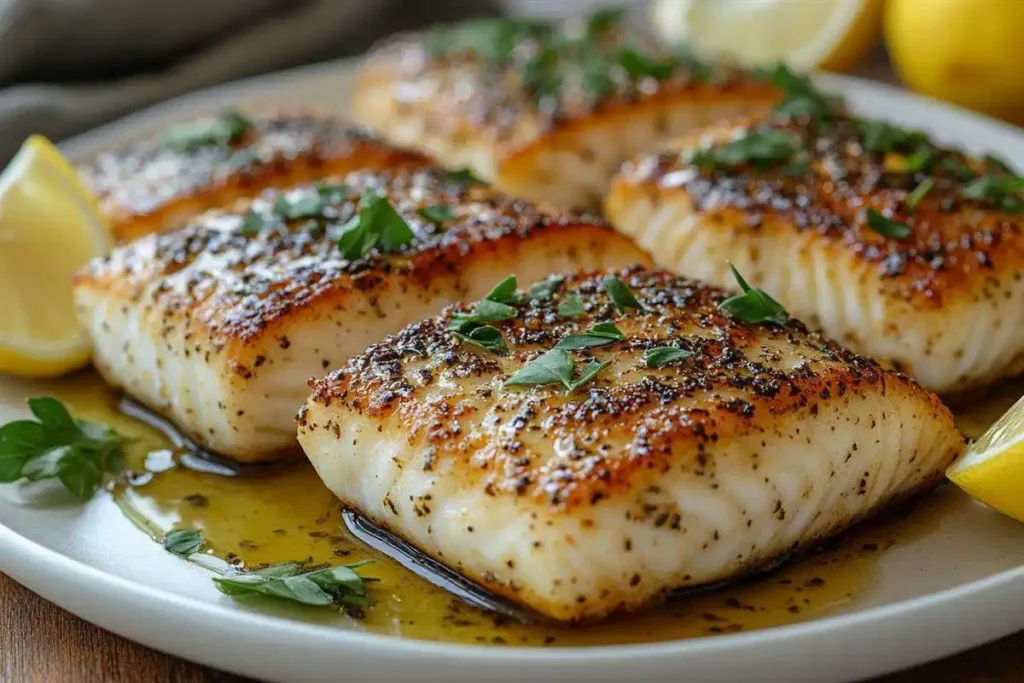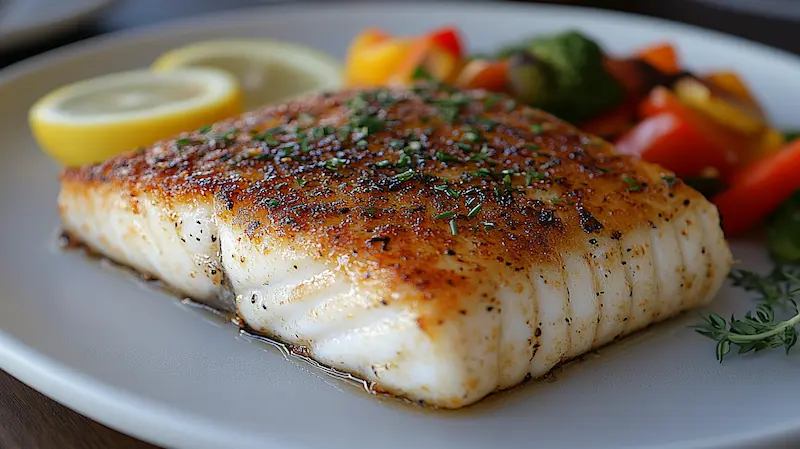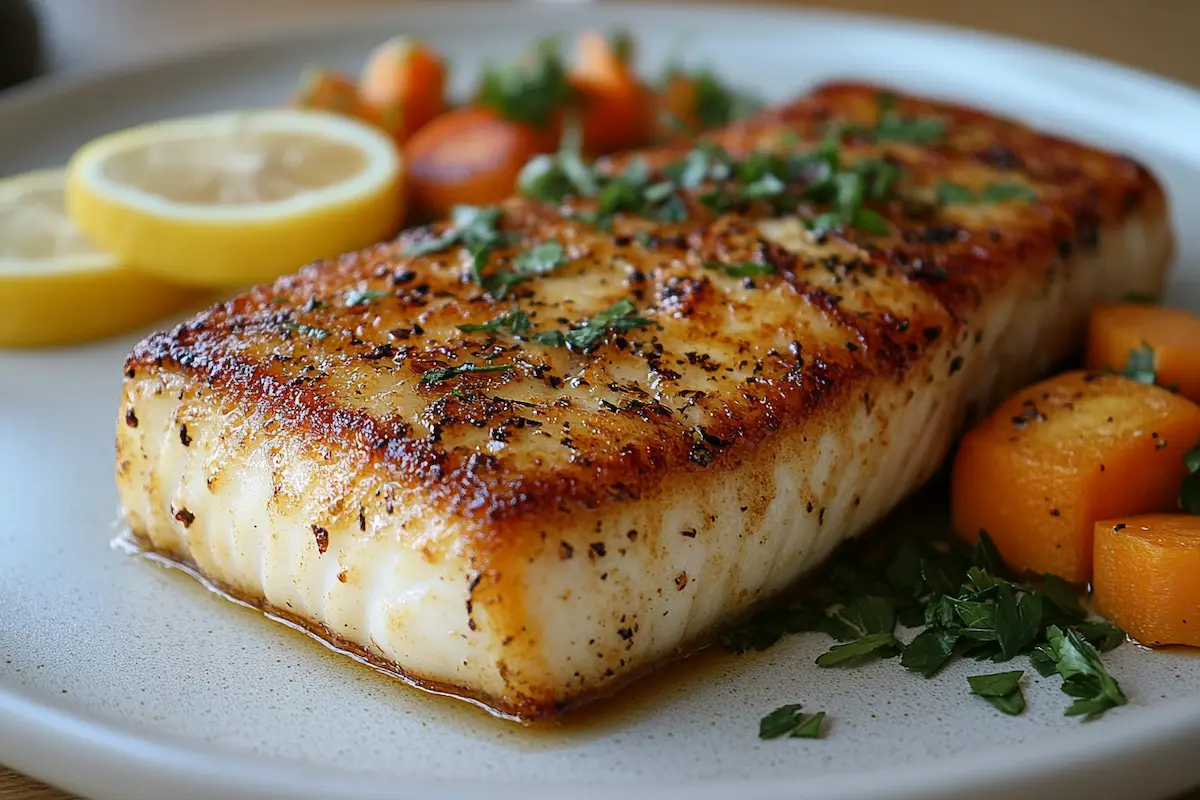Table of Contents
Many wonder if Should I soak rockfish before cooking?. Soaking fish is key in rockfish prep. It helps remove impurities and enhances the fish’s texture and taste. This step is vital for a tasty and safe meal.
Knowing the pros and cons of soaking rockfish is important. It’s a simple yet detailed process to get the best flavors and textures. Soaking can greatly improve the dish, whether it’s grilled, baked, or pan-seared.
Key Takeaways
- Soaking fish is an essential step in rockfish preparation
- Rockfish preparation involves several steps to ensure food safety and quality
- Soaking rockfish can help remove impurities and improve texture and flavor
- Different cooking methods can be used for rockfish, including grilling and baking
- Understanding the benefits and drawbacks of soaking rockfish is crucial for optimal results
- Rockfish preparation requires attention to detail to bring out the best flavors and textures
- Soaking fish can make a significant difference in the final result of the dish

Understanding Rockfish: Species and Characteristics
Rockfish is a nutritious fish with many species. Each has its own special traits. Knowing about these helps you cook rockfish right and choose the best seafood.
There are over 100 rockfish species, from Pacific rockfish to vermilion rockfish. Each has its own seafood characteristics. For instance, Pacific rockfish is mild and firm, great for fish tacos.
Rockfish is also very nutritious. It’s full of protein, omega-3s, and vitamins. A 3-ounce serving has 20 grams of protein and 50% of vitamin D. It’s perfect for those watching their health.
Common Types of Rockfish
- Pacific rockfish
- Vermilion rockfish
- Black rockfish
- Yellowtail rockfish
Nutritional Profile
Texture and Flavor Profile
The texture and taste of rockfish change with the species and cooking. Generally, it’s firm and mild, with a sweet hint. Cooked, it’s flaky and tender, ideal for many dishes.
Should I Soak Rockfish Before Cooking?
Preparing rockfish often raises the question of soaking before cooking. Soaking can remove impurities and enhance the fish’s texture. This step is key in fish preparation techniques.
Soaking rockfish has several benefits. It can reduce fishy odors and improve texture. A water and salt solution can remove impurities, leaving the fish with a milder taste. It also helps to remove blood and impurities, making the fish cleaner and more appealing.
Deciding to soak rockfish depends on the fish type and desired outcome. Some rockfish types absorb flavors and odors easily, making soaking essential. The right soaking techniques and solutions can boost the fish’s natural flavors, creating a delicious dish.
Popular soaking solutions for rockfish include:
- Water and salt
- Lemon juice and herbs
- White wine and garlic
These solutions add flavor and tenderize the fish. They make it perfect for various cooking methods. By trying different soaking solutions and techniques, cooks can find the best way to prepare their rockfish for a memorable meal.
Benefits of Soaking Rockfish
Soaking rockfish can make it taste better and feel softer. It helps remove blood and impurities. This makes the fish more tender and enjoyable to eat.
Soaking also gets rid of fishy smells. This is great because strong smells can turn people off. By using water and salt, the fish smells fresh and clean.
Key Benefits of Soaking Rockfish
- Removal of blood and impurities
- Improvement of fish texture improvement
- Reduction of fishy odors
Soaking rockfish also makes the flavor better. It lets the natural taste of the fish shine through. You can then add seasonings and marinades to make it even tastier.
Different Soaking Solutions for Rockfish
Preparing rockfish involves using fish soaking solutions to improve its taste and texture. There are many seafood preparation methods to choose from. The soaking solution depends on what you like and what you want to achieve. Common options include water, saltwater, and acidic mixtures like lemon juice or vinegar.
The right fish soaking solutions can greatly improve your dish. For instance, saltwater can remove impurities and excess moisture. This makes the fish firmer and more flavorful. Acidic solutions, like lemon juice, can tenderize the fish, making it easier to cook.
Here are some popular seafood preparation methods using different soaking solutions:
- Water: A simple and effective way to soak rockfish, water can help to remove impurities and excess moisture from the fish.
- Saltwater: A mixture of water and salt, saltwater can help to enhance the flavor and texture of the fish.
- Acidic solutions: Solutions like lemon juice or vinegar can help to break down the proteins in the fish, making it more tender and easier to cook.
By selecting the right fish soaking solutions and seafood preparation methods, you can make tasty and memorable dishes. These dishes will highlight the unique flavor and texture of rockfish.

How Long to Soak Rockfish
Soaking rockfish is key to getting it ready for cooking. The soaking time affects the fish’s texture and taste. It’s important to soak it for the right amount of time to keep it safe and tasty. The soaking time ranges from 30 minutes to 2 hours, depending on the fish’s size and type.
It’s important to soak rockfish in cold water to prevent bacterial growth. The water should be below 40°F (4°C) to keep the fish safe. The soaking time can also depend on the recipe and cooking method.
Minimum Soaking Time
The minimum soaking time for rockfish is 30 minutes. This helps remove impurities and bloodlines. It’s good for small rockfish fillets or steaks.
Maximum Soaking Time
The maximum soaking time is 2 hours for larger fillets or whole rockfish. But, watch out for over-soaking, which can make the fish mushy.
Temperature Considerations
Temperature is crucial when soaking rockfish. It affects bacteria growth and the fish’s texture. The best temperature is between 32°F (0°C) and 40°F (4°C). Change the water often to keep the temperature steady and prevent bacteria.
By following these guidelines, you can make sure your rockfish is safe and delicious. Always follow fish safety guidelines to avoid foodborne illness.
Potential Drawbacks of Soaking Rockfish
Soaking rockfish can be a good way to prepare it for cooking. But, it’s important to know the drawbacks of soaking fish. Over-soaking can make the fish lose flavor and texture. Also, fish preparation risks like contamination can happen if the soaking solution isn’t clean.
Some key risks to think about when soaking rockfish include:
- Introduction of contaminants: If the soaking solution isn’t clean, it can bring bacteria and other harmful things into the fish.
- Over-soaking: Soaking the fish too long can make it taste bad and feel mushy.
- Nutrient loss: Soaking can also cause the fish to lose important nutrients like vitamin C and B vitamins.
To avoid these risks, it’s important to follow food safety rules when soaking rockfish. Use a clean soaking solution, soak the fish for the right amount of time, and handle it safely to avoid spreading germs. By knowing the drawbacks of soaking fish and taking steps to reduce them, you can have a safe and tasty rockfish meal.
Alternative Preparation Methods
Cooking rockfish doesn’t always mean soaking it. There are many other ways to prepare it. These methods can make rockfish taste and feel even better, offering a fresh twist for your meals.
Cooking rockfish can be easy if you know the right techniques. One popular method is direct cooking. This means cooking the fish without soaking it first. It’s perfect for keeping the fish’s natural taste.
Direct Cooking Methods
Direct cooking includes grilling, baking, and pan-frying. These methods cook rockfish quickly and keep its flavor. For instance, grilling adds a smoky taste, while baking keeps it moist. Pan-frying gives a crispy outside and a soft inside.
Quick Rinse Technique
The quick rinse technique is another way to prepare rockfish. It involves rinsing the fish under cold water to clean it, then cooking it right away. This method is ideal for removing impurities without soaking.
Dry Preparation
Dry preparation involves seasoning the rockfish with herbs and spices before cooking. It’s great for adding flavor without extra moisture. This method is perfect for those who love a flavorful dish.
Best Cooking Methods for Rockfish
There are many ways to cook rockfish for a tasty meal. Cooking rockfish can be as easy as baking, grilling, or frying. Each method brings out a special flavor and texture. Rockfish is a great choice for those wanting to try new fish recipes.
Some popular ways to cook rockfish include:
- Baking: This method helps retain the moisture and flavor of the fish.
- Grilling: Grilling adds a smoky flavor and a nice char to the outside of the fish.
- Frying: Frying creates a crispy exterior and a tender interior.
To get the most out of your rockfish, it’s essential to choose the right cooking method. Cooking rockfish can be a bit tricky, but with the right techniques and fish recipes, you can create a mouth-watering dish. Here’s a simple recipe to get you started:
With these tips and fish recipes, you’ll be well on your way to creating delicious cooking rockfish dishes that are sure to impress.
Safety Considerations When Preparing Rockfish
When you’re getting ready to cook rockfish, it’s key to follow fish safety guidelines. This ensures your meal is not only tasty but also safe to eat. It’s all about how you handle and store the fish to avoid contamination and food poisoning. Keeping the fish safe is vital for its quality and your health.
To avoid contamination, store rockfish in a sealed container. Make sure it’s away from other foods. Also, it’s important to handle and cook the fish right to avoid food poisoning. Here are some important fish safety guidelines to remember:
- Handle the fish gently to prevent damage and contamination
- Store the fish in a sealed container and keep it refrigerated at a temperature of 40°F (4°C) or below
- Cook the fish to an internal temperature of at least 145°F (63°C) to ensure food safety
By sticking to these seafood storage and handling tips, you can enjoy a safe and healthy rockfish meal. Remember, it’s also crucial to follow these guidelines when cooking and storing other seafood. This helps prevent contamination and food poisoning.
| Storage Method | Temperature | Shelf Life |
|---|---|---|
| Refrigerated | 40°F (4°C) | 1-2 days |
| Frozen | 0°F (-18°C) | 6-8 months |
Tips for Selecting Fresh Rockfish
Choosing the right fresh fish is key for a tasty and safe meal. Look for rockfish that shows seafood quality in its looks and smell. A fresh rockfish should smell slightly sweet, not strongly fishy.
At the fish market, check the rockfish for any damage or decay. The flesh should be firm and shiny. Ask the fishmonger about the rockfish’s origin and freshness to ensure it’s up to your standards.
- Check the eyes for clarity and brightness
- Look for a slightly sweet smell, rather than a strong fishy odor
- Check the flesh for firmness and a slightly shiny appearance
By following these tips, you can get seafood quality rockfish that’s fresh and safe. Always handle the rockfish gently and store it properly until you cook it to keep its quality.
Conclusion
Preparing rockfish is all about careful planning for a great meal. Knowing the fish’s traits, soaking it right, and choosing the best cooking methods are key. This way, home cooks can make tasty rockfish dishes every time.
Whether you soak the fish or try other methods, remember to keep it safe and flavorful. This guide helps you prepare rockfish confidently, fitting your taste and cooking skills. Rockfish can then become a favorite in your kitchen, adding health and flavor to your meals.
FAQ
What is the purpose of soaking rockfish before cooking?
Soaking rockfish can help remove blood and impurities. It also makes the fish’s texture better and reduces any fishy smells.
What are the different soaking solutions that can be used for rockfish?
You can soak rockfish in water, saltwater, or acidic solutions. Each has its own benefits and drawbacks.
How long should rockfish be soaked?
Rockfish should soak for at least 30 minutes to up to 2 hours. The exact time depends on the soaking solution and desired result.
What are the potential drawbacks of soaking rockfish?
Soaking rockfish too long can be a problem. It might introduce contaminants and lose the fish’s natural flavors.
What are some alternative preparation methods for rockfish besides soaking?
Instead of soaking, you can cook rockfish directly. Quick rinses or dry preparation are also good options.
What are the best cooking methods for rockfish?
Rockfish can be baked, grilled, or fried. The best method depends on what you like and what you’re aiming for.
What safety considerations should be kept in mind when preparing rockfish?
Always follow food safety rules when cooking rockfish. Make sure to store the fish right and avoid cross-contamination for a safe meal.
How can I select fresh rockfish?
Choose rockfish with bright skin, clear eyes, and a firm smell. Store it properly until you’re ready to cook.


Soaking Rockfish
Ingredients
Soaking Solutions
- 4 cups Water Used for a basic soak to remove impurities.
- 2 tablespoons Salt Used to enhance flavor during soaking.
- 1 cup Lemon juice Can be used for flavor and tenderizing.
- 1 clove Garlic, minced Optional for added flavor.
Rockfish
- 1 pound Rockfish fillets Fresh rockfish for soaking and cooking.
Instructions
Preparation
- Choose your soaking solution (water and salt, lemon juice and herbs, or another option).
- Prepare the soaking mixture by combining chosen ingredients in a large bowl or container.
- Add the rockfish fillets to the soaking solution and ensure they are fully submerged.
- Let the rockfish soak for at least 30 minutes and up to 2 hours depending on size.
Cooking
- Remove the rockfish from the soaking solution and rinse under cold water.
- Pat the rockfish dry with paper towels.
- Cook the rockfish using your preferred method: baking, grilling, or frying.

